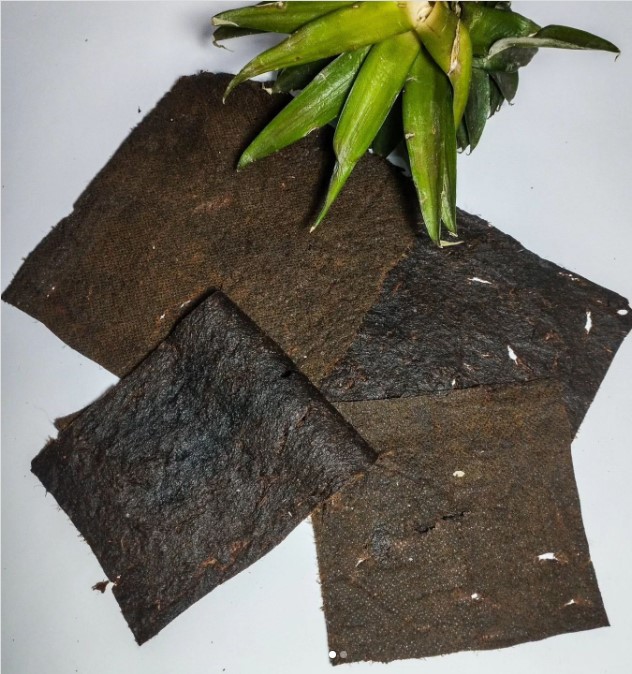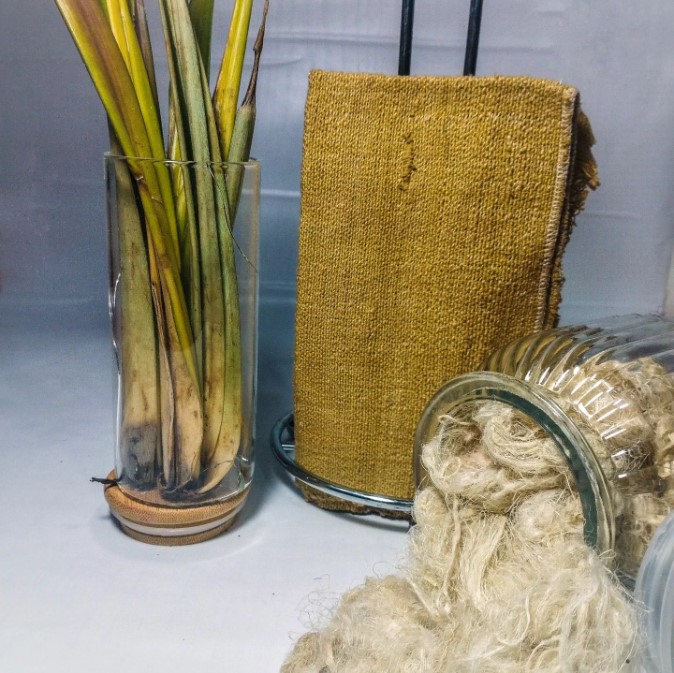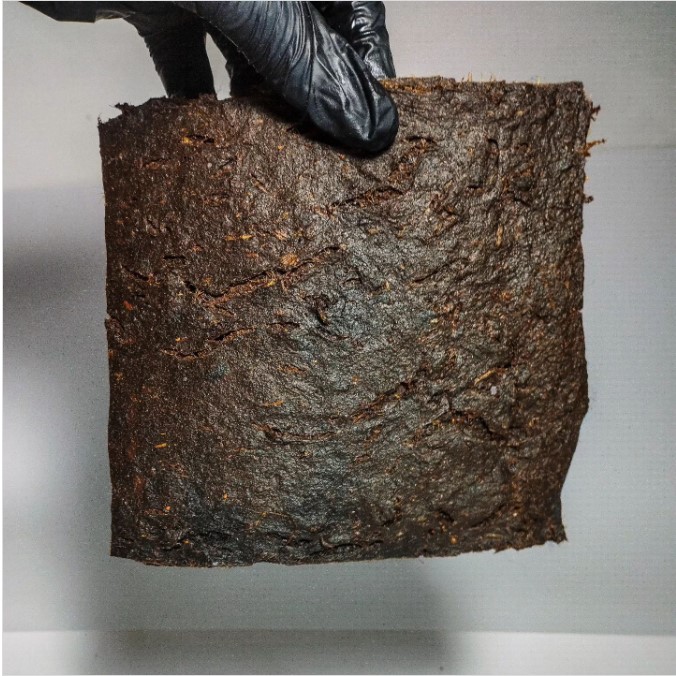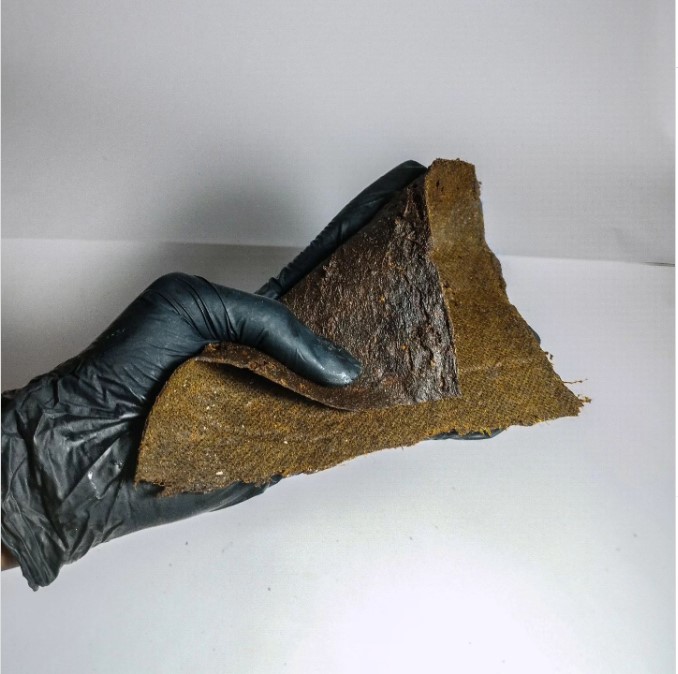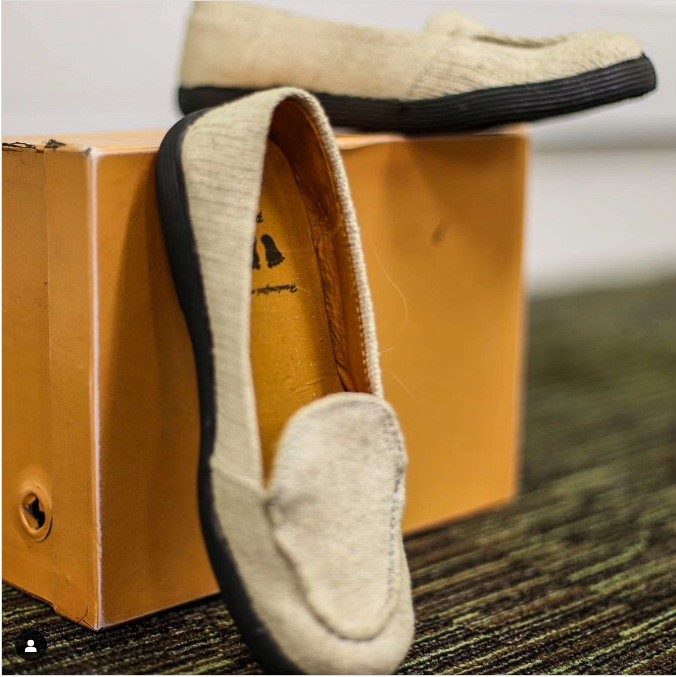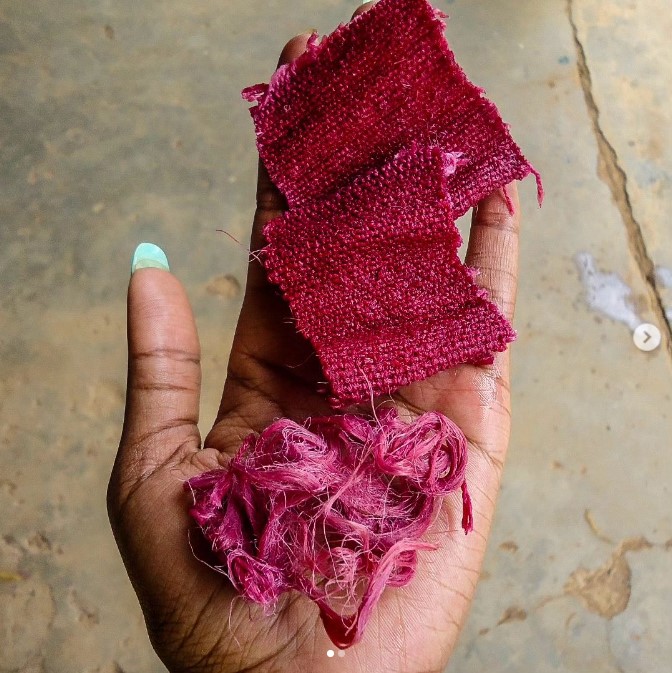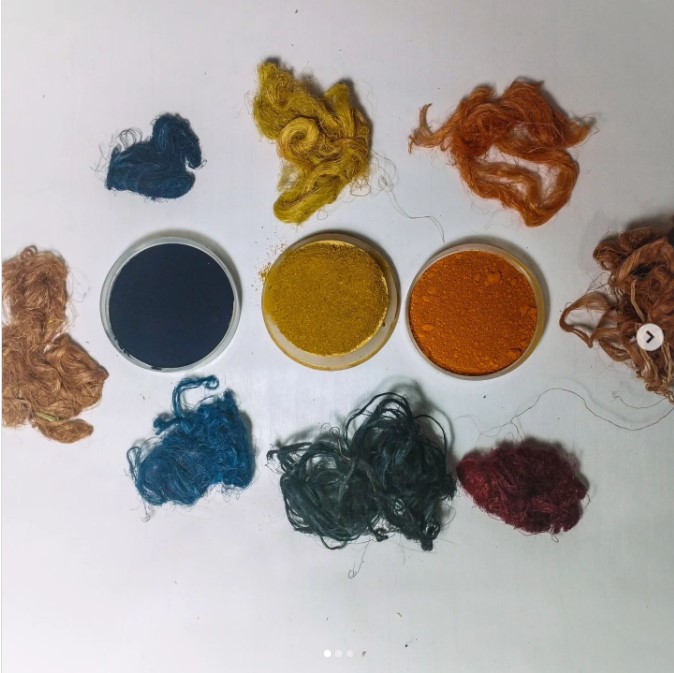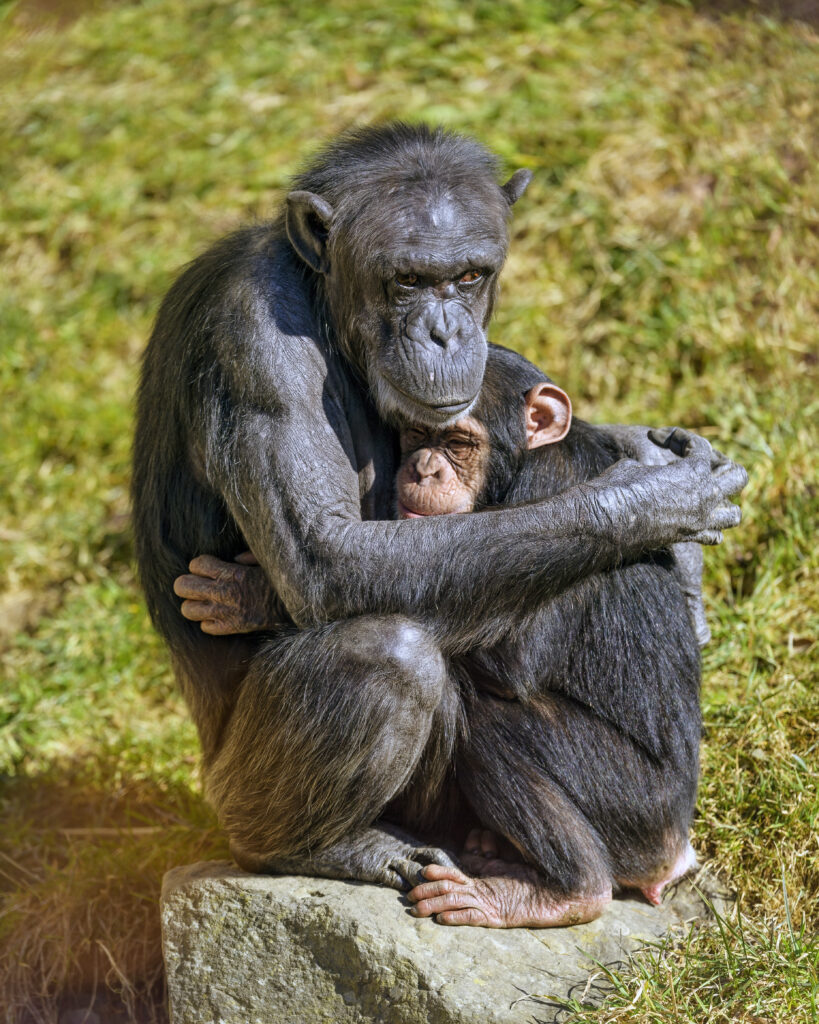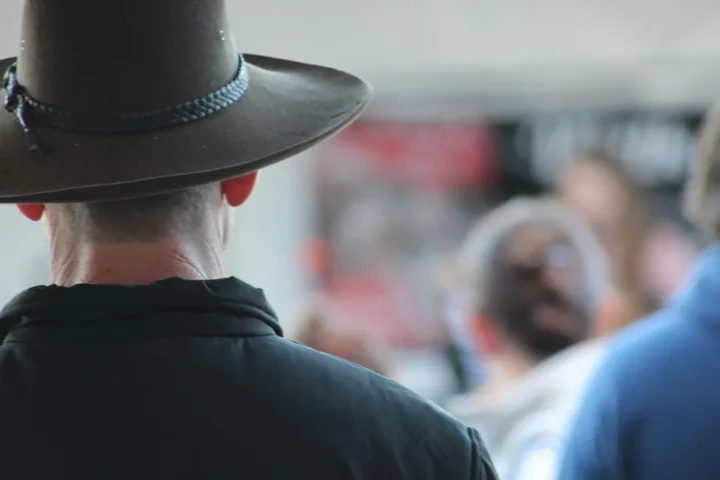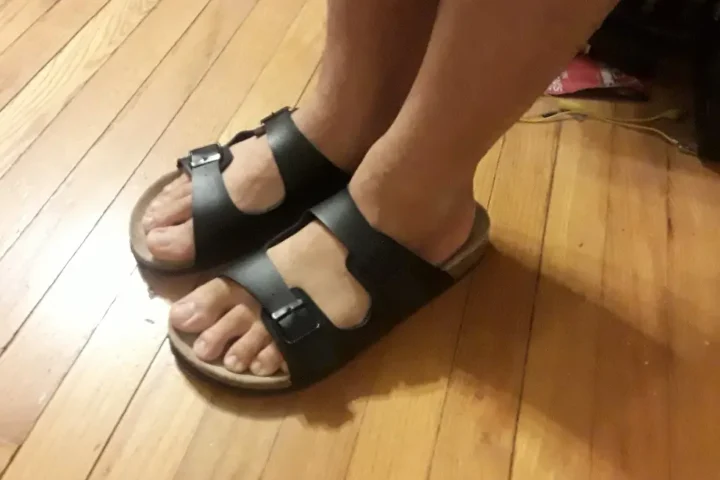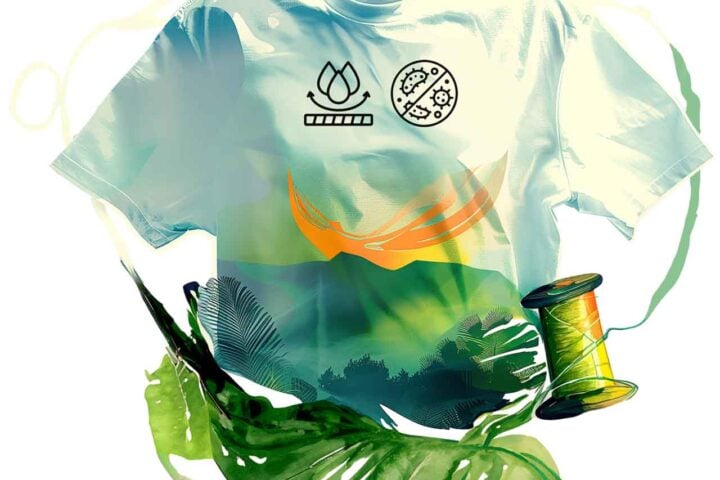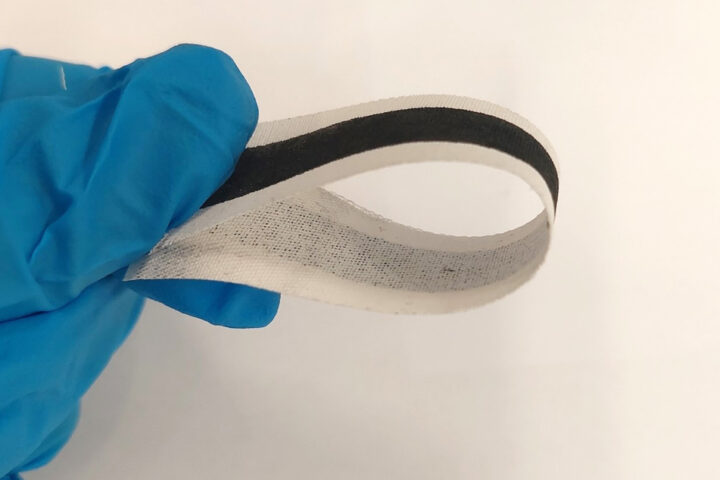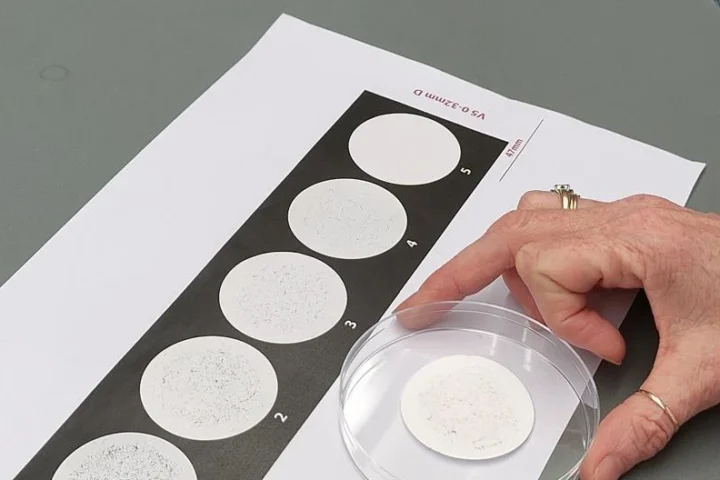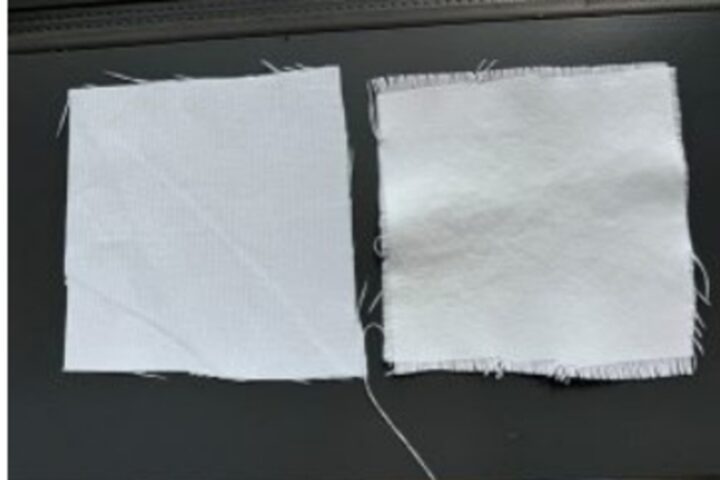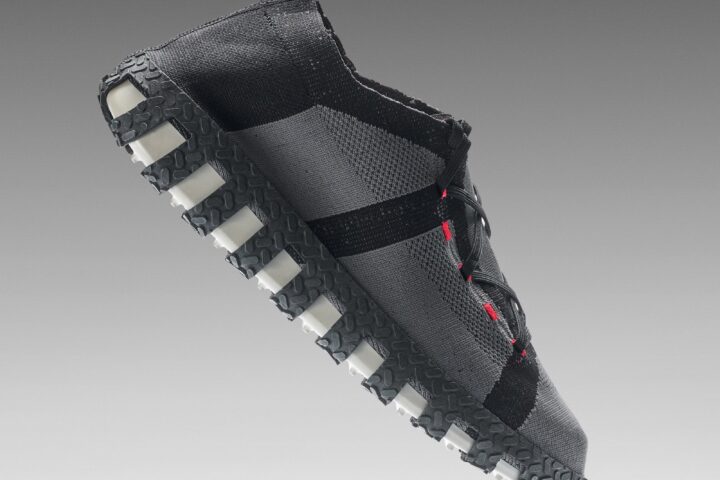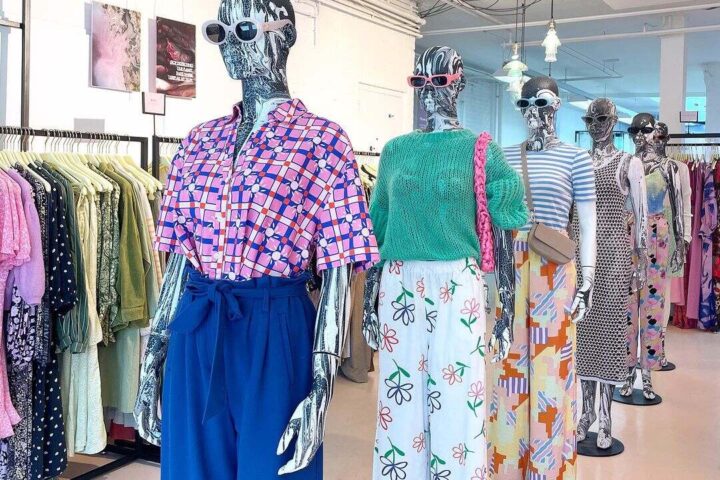Pine Kazi, now turned to Eco Nasi, is a Kenyan startup that transforms pineapple leaves into eco-friendly products such as shoes and bags. The business was founded by three passionate students in 2019 to address the waste management issues in their home place whilst also encouraging youth empowerment, economic development and environmental sustainability.
Mike Langat, Angela Nzomo & Olivia Awuor
The transition from Pine Kazi to Eco Nasi in 2024 was driven by a desire to better reflect the company’s commitment to sustainability and environmental responsibility. The name itself suggests an emphasis on ecological considerations and delivers a clear message about what the company stands for.
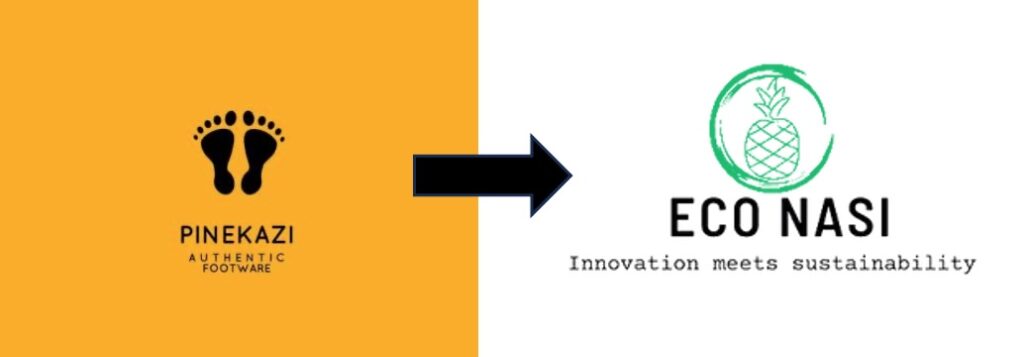
Process:
Fashion is a vibrant kaleidoscope of creativity, but it can also be a deadly killer to our environment. It’s estimated to be responsible for 10% of global carbon emissions, catapulting it as one of the most contaminating industries in the planet. According to MIT, one polyester T-shirt generates 5.5 kg of CO₂ and a cotton T-shirt only 2.1kg. Through this you can understand why Pine Kazi wants to recycle the astonishing 766 million tonnes of pineapple waste it produces annually.
To do this they transform the waste into textiles, beginning with the collection of pineapple leaves from local farms. These leaves are then processed to extract long fibers, which are cleaned and dried before being spun into yarn. The resulting yarn is woven into fabric, producing textiles that are more durable, strong, lightweight and most importantly, biodegradable.
Eco Nasi Leather , Photo Source : econasi_kenya
Impact:
Every 1,000 tonnes of pineapple waste collected reduces carbon emissions by 0.28 metric tonnes. Additionally, the process requires less water and fewer chemicals compared to traditional textile manufacturing, and its use of natural fibers like Nasitext decreases the reliance on synthetic materials.
However, the team also wanted to tackle unemployment by creating jobs (e.g. waste collectors), supporting Kenya’s economy and farming industry. The company is a symbol of intergenerational equity by proving the majority of adult owned businesses that three normal students with no experience and who come from an underdeveloped country, can start a business.
Meanwhile, this approach can be replicated in other agricultural regions worldwide, where waste products are abundant. Similar initiatives include Orange Fiber in Italy which creates fabrics from citrus waste reducing climate change by 40%.
| Pine Kazi | Orange Fiber | |
| CO₂ Emissions | Low | Low |
| Water Usage | Low | Low |
| Waste Reduction | Significant | Significant |
| Chemical Use | Low | Moderate |
| Energy Consumption | Moderate | Moderate |
| Biodegradability | High | High |
| Market Adoption | Low Market Presence | Emerging Market Presence |
| Economic Impact | Positive | Positive |
| Sustainability | High | High |
| Overall Environmental Impact | Low | Low |
Today, even industry experts in science and fashion encourage the use of sustainable textiles. Designer Brendan McCarthy believes pineapple waste is woven into beautiful textiles and shoes, and Dr. Kate Fletcher from the Centre for Sustainable Fashion at UAL wrote: “It sets out a more pluralistic, engaging and forward-looking picture”.
Similar Posts
Challenges:
Despite its successes, a huge barrier they face are financial constraints. Most of the startup’s which are founded in Africa are the tech ones, and because Pine Kazi is in the sustainability sector and still upcoming, most investors are hesitant. Likewise, lack of proper factories and inadequate machinery slows down the production of shoes and bags. While Pine Kazi wants to educate the public about the benefits of buying their products, they still remain largely unknown in the competitive fashion markets.
Nevertheless, networking, mentoring and social media are at the forefront of their work ethic. A pivotal moment for them was when the company transitioned from Pine Kazi to Eco Nasi, likely motivated by the need to adapt to changing market demands and business strategies. Eco Nasi primarily focuses on producing and selling pineapple textiles and leather, reducing water usage by 97%, carbon emissions by 95%, and completely eliminating toxic waste.
In essence, the transition from Pine Kazi to Eco Nasi is a journey of strategic adaptation and visionary thinking. The company’s pioneering spirit and commitment to sustainability epitomize the transformative power of innovation in addressing global challenges. By harnessing nature’s abundance, we can weave a more sustainable future—one thread at a time.
